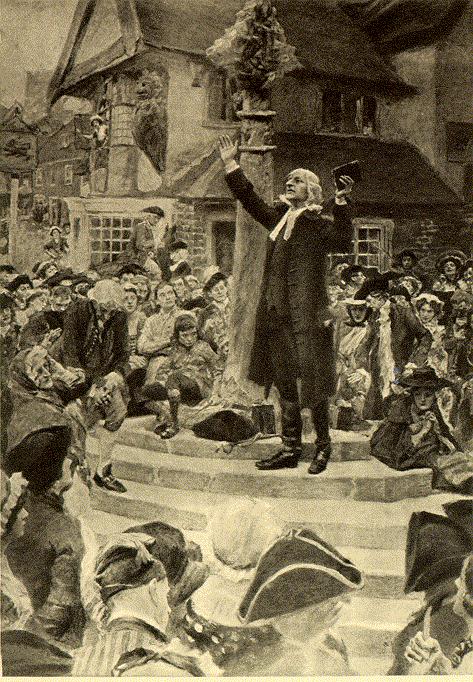

Welcome, Drew student, to a new approach to learning United Methodist history - online distance learning, which links students and instructor in widely separated places.
Long ago and far away, narratives of bygone days and historical explanations of present-day realities passed through the air from the speaking mouth of the teacher to the hearing ear of the pupil. Often poetry rhymed the story's way, and poetic rhythms made it easier for the learner to memorize the historian's story.
Later, the historian's hand was linked by some writing material with the student's reading eye, thereby making it possible for the narrator of history to be in a different place or time from that of the pupil. And books, by making it easy to look up facts, eliminated the need for memorization.
More recently, the speaking mouth, the hearing ear, and the reading eye had come together in the classroom. Students have prepared for their professor's mouth-to-ear lectures and for discussions with their classmates by wearing out their eyes reading the books of living scholars they will never meet and the books through which dead researchers continue to enliven their understanding.
Now, a new method of learning history is available that is as new as the written or printed word was in the past. And you, a Drew student taking LOGON 240, 260 or 261, have the opportunity to be part of a cyber-classroom composed of desks, chairs, screens, and keyboards in diverse places.
These online courses illustrate genuine collaboration. Just as the musical Oklahoma (see 1943 on the timeline for Unit 24 in LOGON 261) exists because of the partnership of composer Richard Rodgers and lyricist Oscar Hammerstein II, so the online United Methodist History, Doctrine and Polity courses exist because computer composer Paul Riemann and history lyricist John McEllhenney had enjoyed the happiest of interactions from the Spring of 1997 until the Spring of 2001. John continues as lyricist, but Paul has retired from composition. His place is now taken by Carl Savage.
You, the student, now become a further collaborator. McEllhenney, Riemann, and Savage have brought together a wealth of materials to help you study United Methodist history. The introductions to each unit are similar to class lectures. In some cases, they organize and outline the history to be covered by the unit. In others, they set the scene and try to stimulate your own research and thinking. Illustrations abound, often one for each computer screen.
The reading assignments detail United Methodist history itself and different ways of presenting it. Two of the presentations will be useful for teaching United Methodist history to the laity - John McEllhenney's impressionistic essay "The Four Tides of United Methodism" in 200 Years of United Methodism: An Illustrated History, and the book United Methodism in America: A Compact History, which McEllhenney edited. The other two assigned books are much more scholarly - Richard Heitzenrater's magisterial Wesley and the People Called Methodists, and The Methodist Experience in America: A Sourcebook edited by Russell Richey, Kenneth Rowe, and Jean Miller Schmidt.
Timelines, formatted in a variety of ways, help you see United Methodist history in context. The self-quiz questions, in the first place, are memory aids, allowing you to test how well you remember what you have read. Then they prepare you for the exams. Essay questions challenge you to bring together all you have learned.
Again, welcome to the United Methodist History Doctrine and Polity Online Courses. We look forward to collaborating with you in this new approach to learning United Methodist history.
Those wishing to apply online for non-degree particpation as a theological online student in any of the classes may do so directly
here: http://www.drew.edu/theo/forms/nondegree/index.php